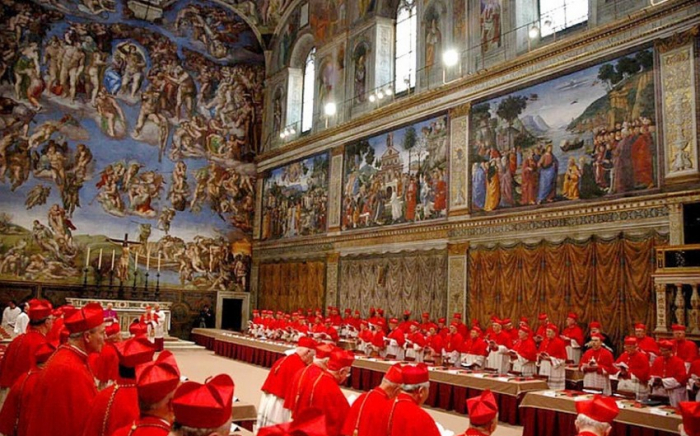During Francis’ 12-year reign leading the world’s 1.4 billion Catholics, the late pope’s support for LGBTQ Catholics and suppression of the traditional Latin Mass were among moves that rankled conservatives in the church.
Now, “whoever is elected will be of a centrally conservative disposition; after 12 years of Pope Francis ‘stirring things up,’” said Serenhedd James, editor of Britain’s Catholic Herald magazine.
“I think the cardinals will want someone who will take a different, calmer approach.”
According to the Rev. Patrick Mary Briscoe, editor of Our Sunday Visitor magazine, the next pope will bring “a renewed clarity of doctrine” to the church and “focused more internally” on its governance.
Within 20 days of the pope’s death, a conclave consisting of 120 cardinals out of the 138 “princes of the church” who are under age 80 and can vote will gather at the Vatican to pick his replacement.
Four daily ballots will be held until a successor is picked. After 30 ballots, the top two candidates will be the only ones allowed; whoever gets a two-thirds majority will become the next pope.
Briscoe said Francis “completely reshaped the makeup” of the College of Cardinals, the newer members of which were “extremely familiar with each other.”
The late pontiff extended the tenure of Cardinal Giovanni Battista Re, 91, as “dean” of the college, and Briscoe said he might have a “behind-the-scenes influence” on the proceedings, given his knowledge of the other cardinals, old and new.
Some of the top candidates, ranked by Italian Vatican watcher Gaetano Masciullo and Vaticanists Edward Pentin and Diane Montagna of the College of Cardinals Report website, range from an advocate of “neo-modernist” theological positions to more conservative leaders.
AzVision.az
More about:
















































